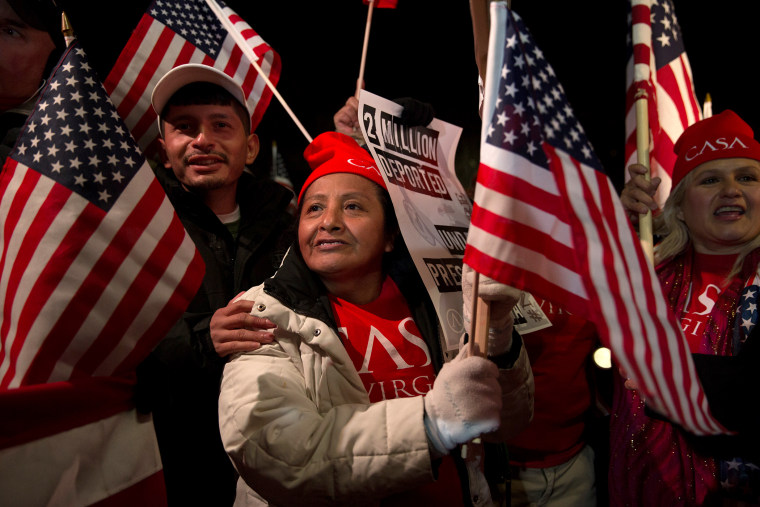President Obama's sweeping executive actions on immigration have been delayed for more than a month thanks to legal challenges aimed at blocking deportation protection for millions of undocumented immigrants.
In that time, there's been a great deal of uncertainty surrounding the timing of the ongoing injunction -- will the executive actions be delayed indefinitely? Will the federal government's appeals put enrollment for the program back on track?
Well, on Tuesday, those following the court drama got one step closer to being able to answer those questions.
What's going on?
The 5th Circuit Court of Appeals granted the Obama administration's request for an expedited appeal, which could ultimately cut down the number of months before the court reaches a final decision.
On April 17, the appellate court will hear oral arguments in the Justice Department's challenge to a federal judge's ruling last month that placed a temporary freeze on the immigration actions. Siding with the 26 states suing the federal government over the executive actions, District Judge Andrew Hanen in Texas had placed a preliminary injunction on the programs to bar immigration officials from accepting new applications.
The DOJ is now asking the 5th Circuit to lift Hanen's temporary block, and allow enrollment to move forward as planned.
So why is this important?
In agreeing to fast-track the appeal, the 5th Circuit is signaling that it is taking the timing of the process as a whole very seriously.
"It all shows how the 5th Circuit seems to recognize that it is a very important case," said Carl Tobias, law professor at the University of Richmond.
As many as four million undocumented immigrants who were expected to qualify for the executive actions will continue to languish in a legal limbo while the challenges wind through the courts. The executive actions were initially intended to roll out in two phases: The first part was supposed to kick off on Feb. 18, extending an already existing program known as Deferred Action for Childhood Arrivals, which has offered work permits and deportation relief to hundreds of thousands of young undocumented immigrants since 2012. The second portion of enrollment for Obama's executive actions were scheduled for May, benefiting the undocumented parents of U.S.-born citizens and permanent residents.
RELATED: States urge Texas judge to reject Obama administration's request
The expedited schedule means those individuals waiting in limbo will get a final decision sooner than what is typically seen in most appeals. But that does not necessarily mean that every step of the process is on the fast-track. Melissa Crow, legal director at the American Immigration Council, said she was surprised to see that the appellate court would be hearing hour-long oral arguments from both sides of the case before making a determination on the emergency stay.
"It is highly unusual for courts to schedule oral arguments on requests for an emergency stay and it’s even more unusual for each side to have an hour of legal arguments," Crow said.
Tobias agreed, calling the hearing "extremely rare." Pointing to same-sex marriage appeals as examples of similarly important, time-sensitive cases that impact a number of people, Tobias courts in the past have held no hearings, left very little briefing time and made very quick decisions. "I think it shows how important the court believes this particular case is," he said.
Got it. So what's next?
The 5th Circuit's filing Tuesday was merely a schedule that offers at least some indicators of how long the administration's request for an emergency stay may take. But there's still little indication of what exactly the courts will ultimately decide.
The Justice Department has already asked the lower court's Judge Hanen to lift his own preliminary injunction. He has yet to make a final decision. But in the more than a month since his initial ruling, Hanen on several occasions has asked for more time and additional input from the plaintiffs in the case. In a hearing last week, Hanen went as far as suggesting he'd sanction the federal government if he found that DOJ attorneys misled him about the implementation of the immigration program.
Meanwhile, the 5th Circuit has yet to announce who will serve on the three-judge panel in New Orleans -- a detail that could give some additional hints as to what to expect from the court come April 17.
"The 5th Circuit has a reputation as the most conservative appeals court in the country," Tobias said, "but then, you really never know what to expect on this issue."
